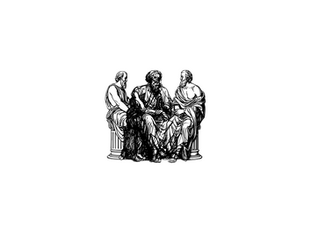
Using AI for Your Mental Health: A Guide to Mindful Integration
Dec 8, 2024
3 min read
0
0
0
In today’s fast-paced world, technology has transformed nearly every aspect of our lives, including how we approach mental health. Artificial Intelligence (AI) is at the forefront of this change, offering tools to support mindfulness, manage stress, and even track emotional well-being. While AI is not a substitute for professional care, it can be a valuable companion in your mental health journey. Here's how you can use AI responsibly and effectively for your mental health.

1. Personalized Mental Health Apps
AI-powered apps like Wysa, Woebot, and Youper provide interactive chatbots that can help you process emotions, practice mindfulness, and develop coping skills. These tools use AI to adapt their responses to your specific needs, making self-help strategies more accessible and personalized.
How to Use:
Dedicate 5–10 minutes daily to interact with the app.
Use it to journal your thoughts, manage anxiety, or learn new coping techniques.
2. Mindfulness and Meditation Tools
Apps like Calm and Headspace use AI algorithms to recommend meditation practices based on your stress levels and goals. By analyzing your behavior, these tools can suggest specific exercises, like deep breathing or sleep meditations, to suit your current state of mind.
How to Use:
Set aside time each day for meditation.
Track your progress and mood changes to build consistency.
3. Mood and Behavior Tracking
AI can help you track patterns in your mood and behavior, offering insights into your mental health. Apps like Moodpath or Daylio collect data about your feelings and activities, helping you identify triggers and trends that impact your emotional well-being.
How to Use:
Log your mood and activities regularly.
Review your reports to identify stressors or positive patterns.
4. Virtual Therapy and Support
AI complements virtual therapy platforms by making it easier to access professional help. For example, AI can match you with the right therapist based on your preferences and needs or assist therapists with progress tracking to enhance care.
How to Use:
Explore AI-driven platforms to find licensed professionals.
Combine virtual therapy with self-help tools for a holistic approach.
5. Stress and Anxiety Management
AI-powered wearable devices like Fitbit or Apple Watch track physical indicators such as heart rate and sleep patterns. These tools can detect signs of stress and offer real-time suggestions like guided breathing exercises.
How to Use:
Wear your device consistently to gather accurate data.
Act on the device’s prompts to manage stress proactively.
6. Educational Content Tailored for You
AI curates mental health resources—like articles, videos, and exercises—based on your interests and challenges. Tools like ChatGPT can answer questions, provide affirmations, or guide you toward self-help resources that resonate with your situation.
How to Use:
Ask specific questions to get tailored advice or recommendations.
Use curated content to build a mental health routine.
Things to Keep in Mind
While AI offers incredible opportunities for mental health support, it’s essential to approach it with mindfulness:
Privacy: Ensure the apps or tools you use are secure and respect your data.
Balance: AI can enhance self-care but shouldn’t replace professional help when needed.
Customization: Experiment with different tools to find what works best for you.
When to Seek Professional Help
AI tools are excellent for self-management, but they cannot replace human connection. If you�’re experiencing severe mental health challenges, reach out to a qualified therapist or counselor. Many professionals now integrate AI insights into their practice to deliver even more personalized care.
Final Thoughts
AI is a powerful tool to support your mental health journey, providing resources that fit seamlessly into your daily life. By integrating AI thoughtfully and responsibly, you can build resilience, manage stress, and better understand your emotional well-being.
Let AI be a part of your self-care toolkit—but always remember the importance of connection, self-awareness, and professional guidance when necessary.
Your mental health matters. Take the first step today, and let technology support your journey to well-being.









